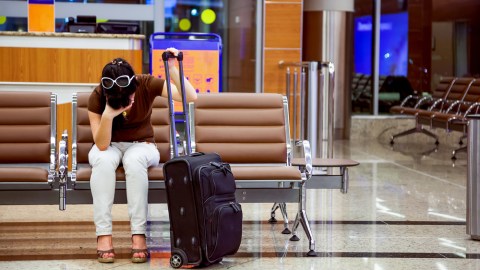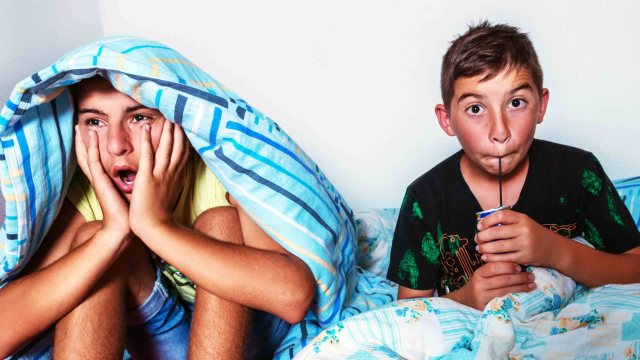Is This the World’s Number One Killer?

Pulling into the parking deck of the health club where I teach this morning, a car sped within inches of my bumper. The aggressive push continued as I turned a corner; she slammed into a spot, sprinting up the stairs before I finished backing into a space.
As I pass the front desk I hear this co-worker tell someone she was late for her 7:30 am meeting—by 100 minutes. Apparently a combination of not setting her alarm and Ambien caused the delay.
Considering the NIH reported that sleeping pills only buy you eleven extra minutes of shuteye, the true culprit was probably more an overall lack of sleep—between 50 and 70 million Americans suffer from a sleep disorder. Ambien is the leader in the $1.6 billion dollar insomnia treatment industry. Sanofi-Aventis has a vested interested in making you think their pill works, regardless of reality.
Regardless of Ambien’s influence on my co-worker, most likely she simply needed that extra hour-plus. As a nation, and a world, we are terribly under-rested, and missed meetings are the least of it. A lack of sleep is implicated in a range of metabolic diseases, including obesity, type 2 diabetes, several cancers, and heart disease. It has been linked to Alzheimer’s and potentially promotes a range of mental disorders.
One major effect of sleep is the production of appetite-stimulating ghrelin. When you don’t sleep enough, your body pumps out more, making you hungrier. Simultaneously your natural appetite suppressant, leptin, decreases by 18 percent. This one-two punch greatly increases bodily craving for energy, most often in the form of carbohydrate-rich foods.
That’s because when lacking sleep you’re apt to make worse choices. You’re more likely to reach for a bag of potato chips or slice of cake than a salad as your decision-making system is compromised. These carbs turn to sugar in your body. Obesity and type 2 diabetes are wicked bedfellows, especially when you spend more time out of bed.
Health begins on the mattress, however. Forget sugar highs masquerading as juice cleanses, sleep is a true toxin sweeper. While the exact role of sleep has long been unknown, major advances in the literature are being made. This “housekeeping” of toxin removal might require that our conscious faculties be shut down. As John Hamilton reports on NPR, cerebrospinal fluid increases dramatically while we’re unconscious, which removes harmful waste proteins. He continues,
The process is important because what’s getting washed away during sleep are waste proteins that are toxic to brain cells … This could explain why we don’t think clearly after a sleepless night and why a prolonged lack of sleep can actually kill an animal or a person.
Sleep also affects our ability to remember and fight off disease. We become less sensitive to insulin when tired. And there’s exploding head syndrome—that’s the term—which is hearing loud imagined noises or feeling something explosive inside when drifting off or upon awakening.
Sleep is so important to Arianna Huffington she recently wrote a book with a silly name on the topic. In 2007 she was so sleep-deprived that she passed out at her desk, waking up in a pool of blood with a broken cheekbone. She notes that in the seventies there were only three sleep centers in the US; today there are over 2,500. She also writes that 40 percent of Americans sleep less than seven hours every night, a number becoming common globally.
The number one reason people give for not sleeping enough is that there’s ‘not enough time.’ Yet time awake is much less fulfilling when exhausted. Huffington finds the balance between being out in the world and asleep in your own a critical one to strike.
These two threads that run through our life—one pulling us into the world to achieve and make things happen, the other pulling us back from the world to nourish and replenish ourselves—can seem at odds, but in fact they reinforce each other.
Man has long struggled against what nature has endowed us with. Perhaps the most futile war to wage is against unconsciousness. Some wear their ability to not sleep as a badge of pride. Given all the problems that such habits provoke, this is a foolish god to honor. A much better one is Hynpos, the god no other would ever dream of dispensing with.
—
Derek Beres is working on his new book, Whole Motion: Training Your Brain and Body For Optimal Health (Carrel/Skyhorse, Spring 2017). He is based in Los Angeles. Stay in touch on Facebook and Twitter.





